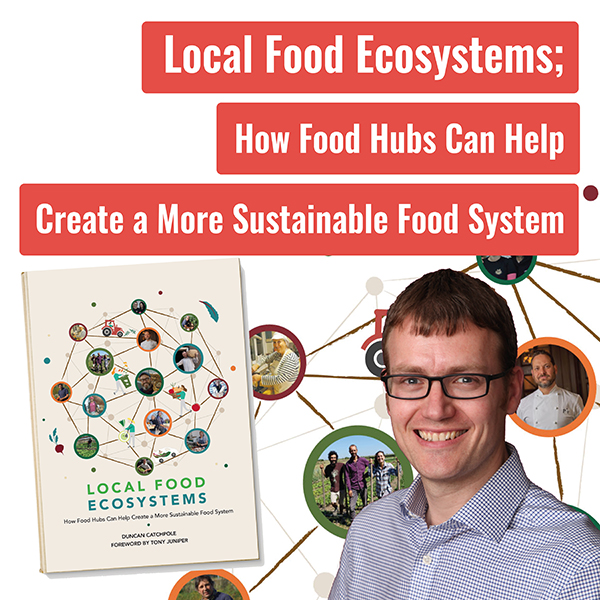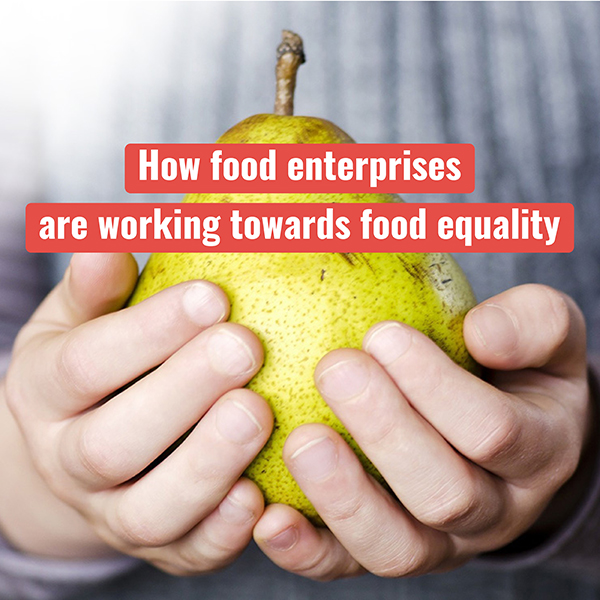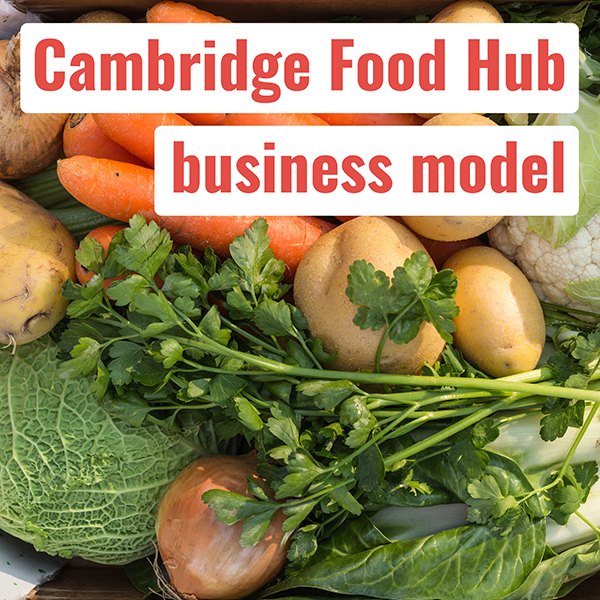Case Studies
Cambridge Food Hub
Key Facts
The Cambridge Food Hub is an innovative food distribution system for the Cambridge area. Their aim is to increase the accessibility of sustainable food whilst supporting local producers and ethical small businesses.
Creating a local food system that puts people & planet first.
| Established in | 2019 |
| Company type | Private company |
| N° of employees | 120 hours p/w |
Background & values
Cambridge Food Hub is part of a limited company called Cambridge Organic Food that was set up 23 years ago. While Cambridge Organic Food connects local organic farms to retail customers, Cambridge Food Hub serves this same purpose through an online platform. According to the team, the food hub is best described as:
A business who wants to bring value to employees, customers, society and the owners in equal measure rather than just the owners.

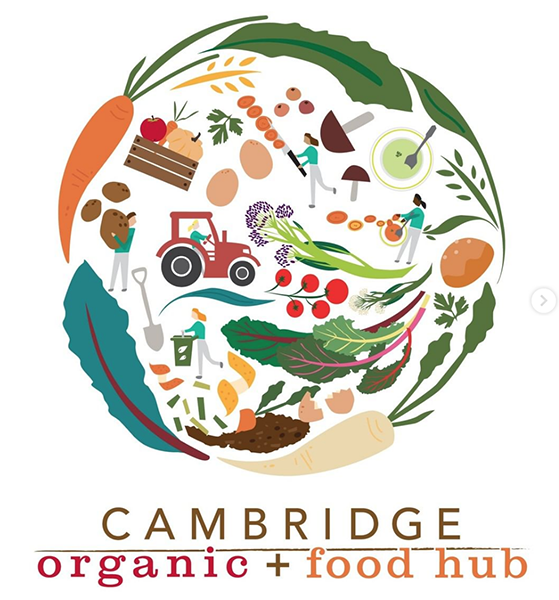
The Vision
Our goal is to promote a sustainable local food ecosystem… We use the term local food ecosystem as there are a load of actors that are connected. The reason for using the word ecosystem is because we like to be inspired by natural ecosystems and the idea that actors are connected and all actors mutually benefit which inspires what we want to do- distributing resources and sharing resources.
How the Open Food Network fits into this vision
Cambridge Organic always knew they needed an online trading platform. As the management team of the company were already involved in the Open Food Network, they believed the organisation would be a good fit. The team appreciated that the OFN aligned with their own values of transparency and supporting small growers.
Cambridge Food Hub is the most proud of the relationships they have made and strengthened while a part of the Open Food Network. For them, seeing first hand the positive impact you have on a new business by helping them access new retailers is rewarding.
When you’re able to make a difference through the network you have and connections you put in place it feels like the idea is working and there are lots of little moments.
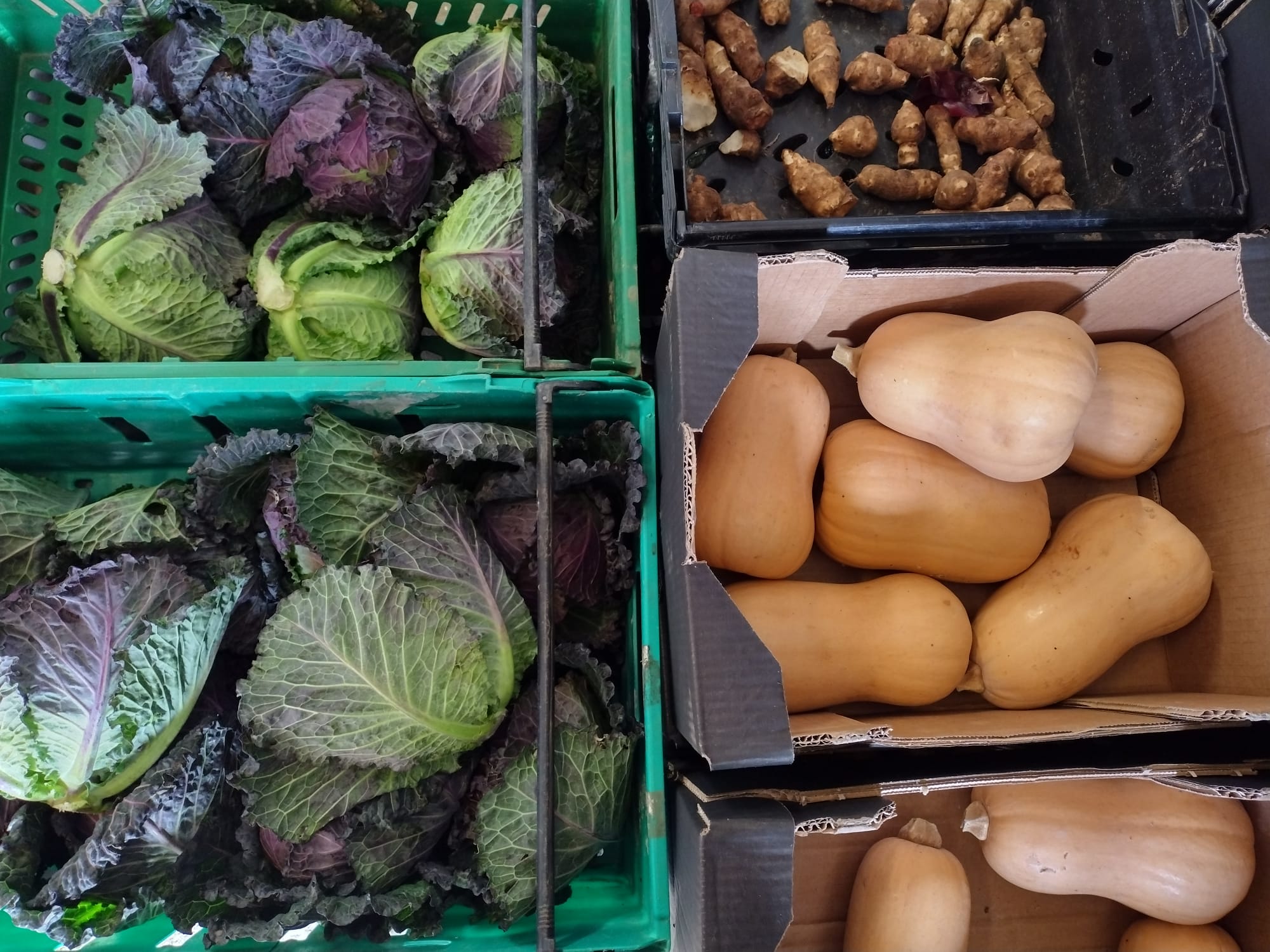
Biggest struggles
Accessing sustainable funding is the biggest struggle for Cambridge Food Hub. As they are registered as a business and not a CIC, they are often ineligible for community grants even though much of their work is focused on strengthening local communities.
Communication between suppliers can be a challenge at times for Cambridge Food Hub, especially when producers work with a number of different distributors, some of whom may not share the same values at the food hub.
It has been difficult seeing the closure of a number of local independent retailers in recent years that were customers of the Cambridge Food Hub. There are challenges facing small businesses that have come alongside the cost of living crisis.
Opportunities
There still seems to be an interest from local people in starting up food-related businesses. In the past year they have taken on a number of small local suppliers producing fantastic high-quality products, from chilli oils and nuts to fermented goods.
Governance

Company structure
Cambridge Food Hub, as part of Cambridge Organic, has a management team made up of three managers. This leadership team decides the general direction of the business with influence from the founder, Duncan Catchpole.
Conflict resolution
Building a culture of good communication is central to conflict resolution at Cambridge Food Hub. They keep in regular contact with suppliers and producers, including meeting in person, to maintain good relationships and address any issues that do arise promptly.
Logistics
Order cycles
Every Wednesday, Cambridge Food Hub updates the prices of their produce before they open the order cycle on Thursday. The order cycle is then open until Monday 12pm the following week, for deliveries on a Thursday. This has changed from a previously short order cycle, as feedback from customers was that ordering so far in advance was tricky for determining stock levels.
After the order cycle closes, reports are generated so the hub manager can order all the produce required for orders that week. Some suppliers deliver directly to Cambridge Food Hub, making use of the free storage they offer, others require the food hub to collect the produce needed.
Holding Stock
Cambridge Food Hub holds stock for their suppliers who already have a profile with the Open Food Network, and sell through the platform. They also hold stock for dry food suppliers. For others, they are required to collect their produce when needed.
Managing waste
As they have good data to predict what they will need for the following week, Cambridge Food Hub has very little food waste. Should they have to throw away spoiled food, their relationship with a local pig farmer who happily takes scraps reduces their impact on the environment.
For edible food waste, the food hub regularly donates to the local community food hub.
They are also interested in circular packaging systems such as containers that can be reused and encourage our suppliers to use reusable packaging such as glass jars.
For the food hub side of business, ensuring that reusable packaging is returned is harder. But, we work with retailers who share our values. So, they generally try to have a circular waste system too.
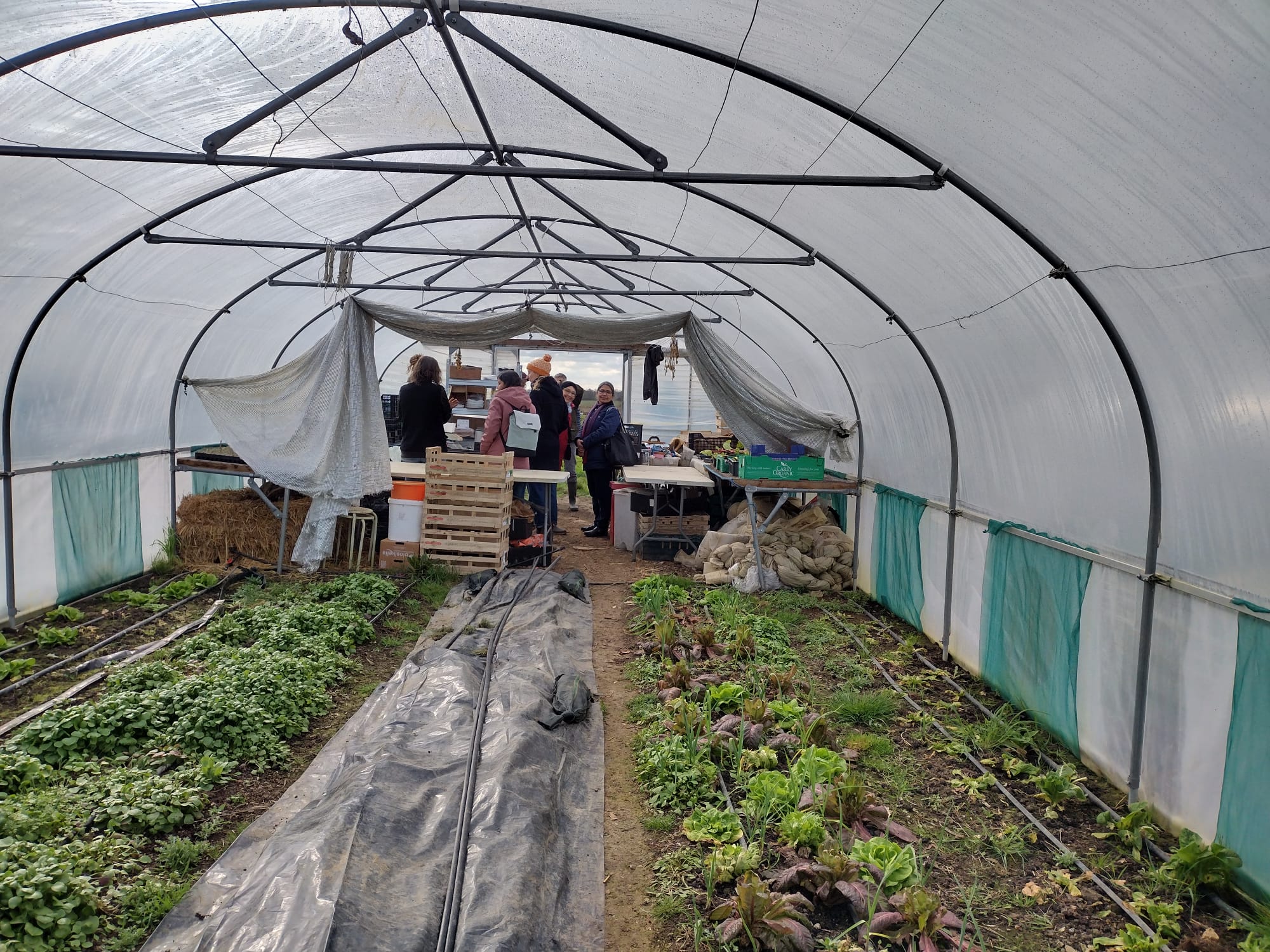
Tools and equipment
Essential tools
Vans are very important. In the warehouse, their cold store for fresh produce needs to be bigger. They also need all the classic tools for operations in the warehouse, such as a pallet truck for example.
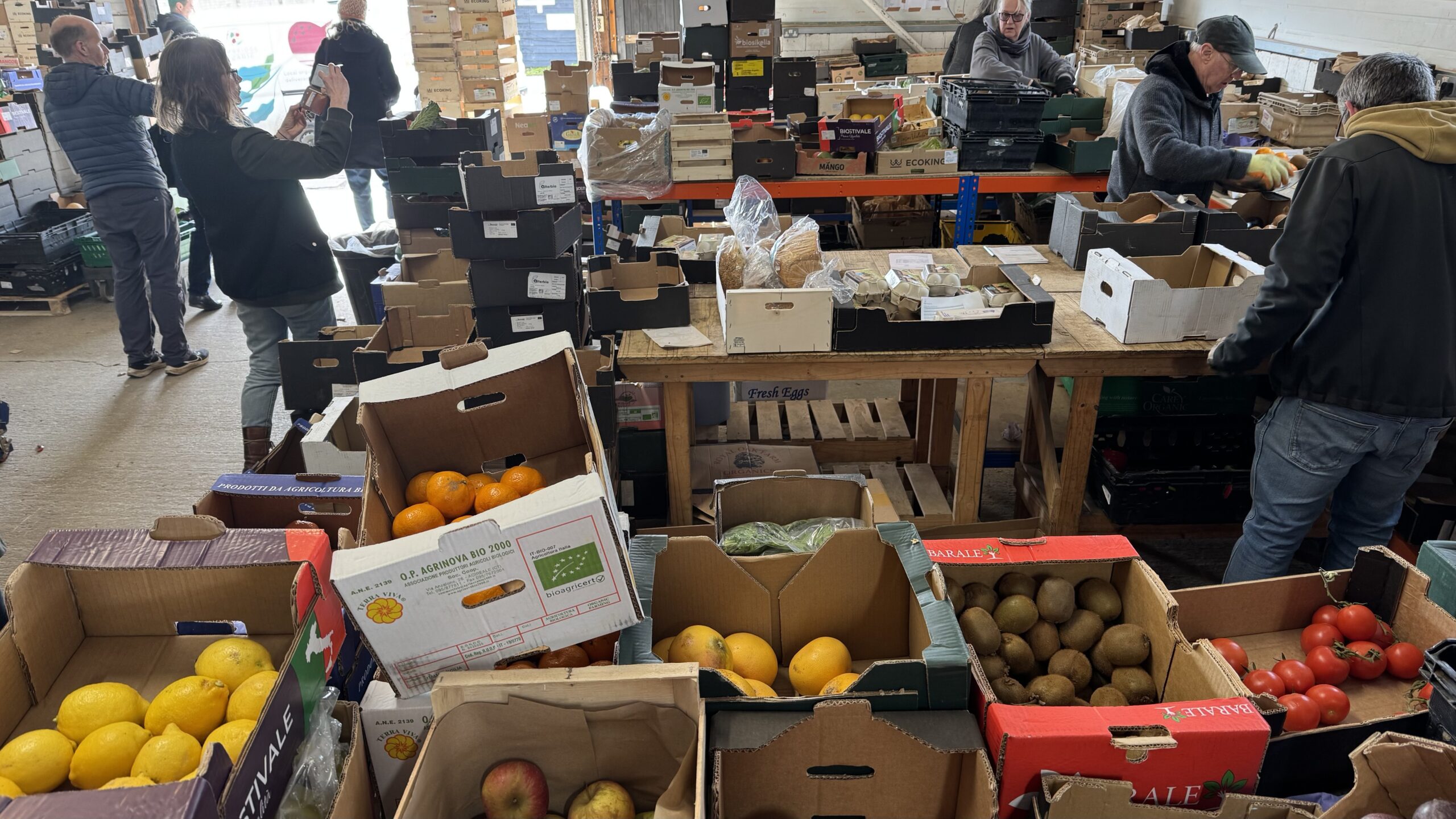
Packing space
Cambridge Food Hub has a warehouse and most of the space is taken up for Cambridge Organic. The warehouse has tables with stations and they put produce both on top and underneath. Their cold store takes up quite a lot of space. Dried goods are stored in a separate warehouse.
David, who does food hub deliveries, has a station in the corner with benches on either side to pack produce and other items for delivery. He typically takes whole crates of things, as people regularly order those. If they do need to split crates, they have a lot of large boxes and other crates which can be used. The team try to reuse everything, so all boxes that they use have had something in them before. So, this means they don’t need to buy any packaging beyond paper bags for packing things like potatoes.
There are eight delivery vans; five of which are electric and three are diesel, although they hope to transition two of their diesel vans to electric in the coming year, and replace some of their older short-range electric vehicles with newer models too. Wholesale deliveries are mostly done by diesel van, until they can find a larger electric van. A lot of the vegbox deliveries are done in electric vans which are smaller. In the office space there are computers and a printer, which is not very high tech but does the job.
Essential software
Cambridge Food Hub use the Open Food Network software and they also use the accounting software, Xero. They have an integration with the OFN which means that draft invoices are automatically generated when orders are placed, saving time. They use Microsoft products for email (Outlook) and other software.
They try to do graphics in house and use publisher or indesign for publicity brochures. A few years back they went through a branding exercise and a graphic designer did some illustrations for them which they use in marketing such as van signage and in written communications.
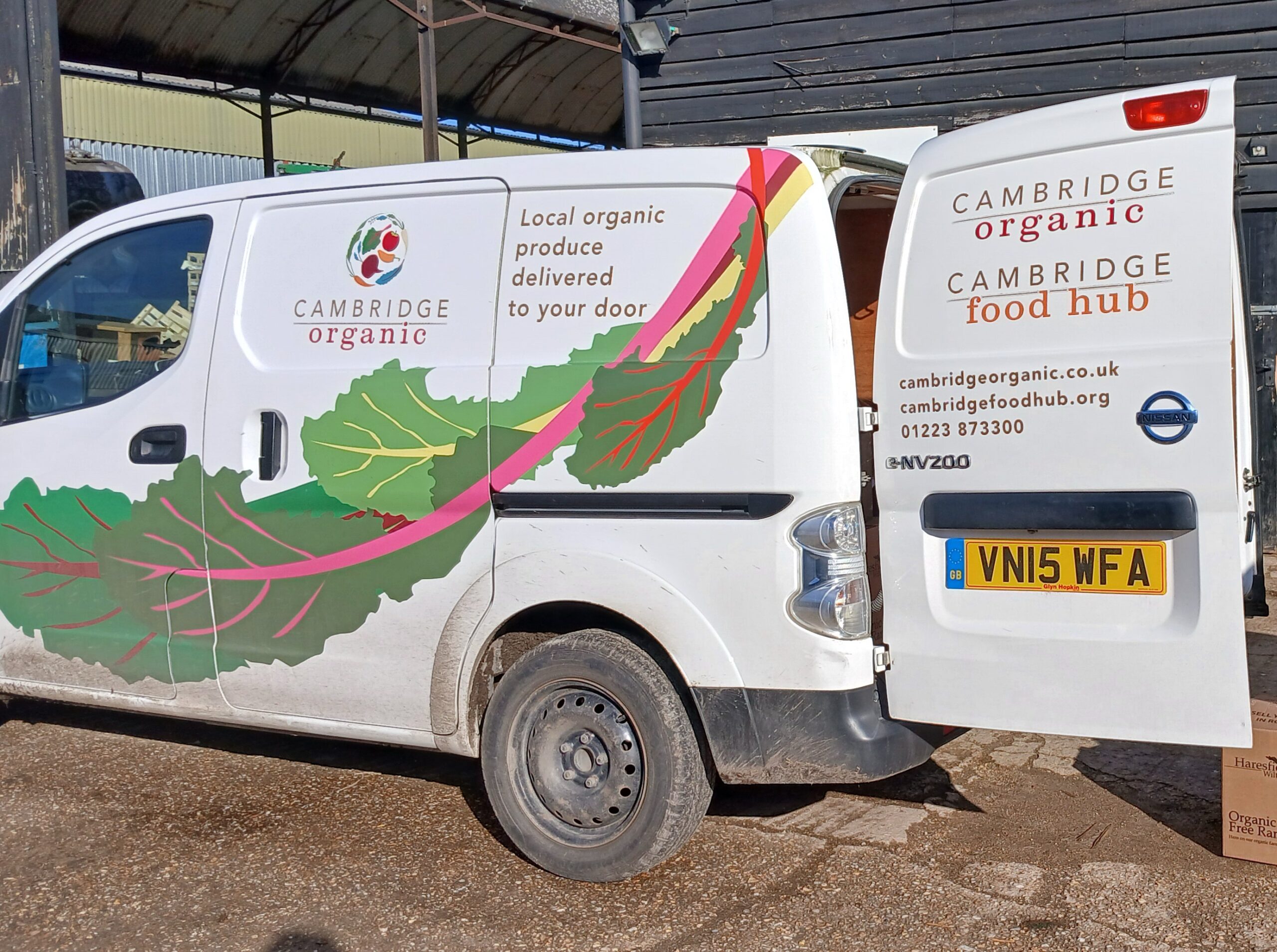
Supplier relationships
Choosing producers
Cambridge Food Hub haven’t had any problems with producers’ values conflicting with their own and they are open to anybody who wants to be part of the local food ecosystem.
Being part of the local food ecosystem is constrained by geographical distance. Geographically they want to ensure that they can easily collect from their suppliers and their suppliers can deliver to them easily. Some of their growers are a little further afield.
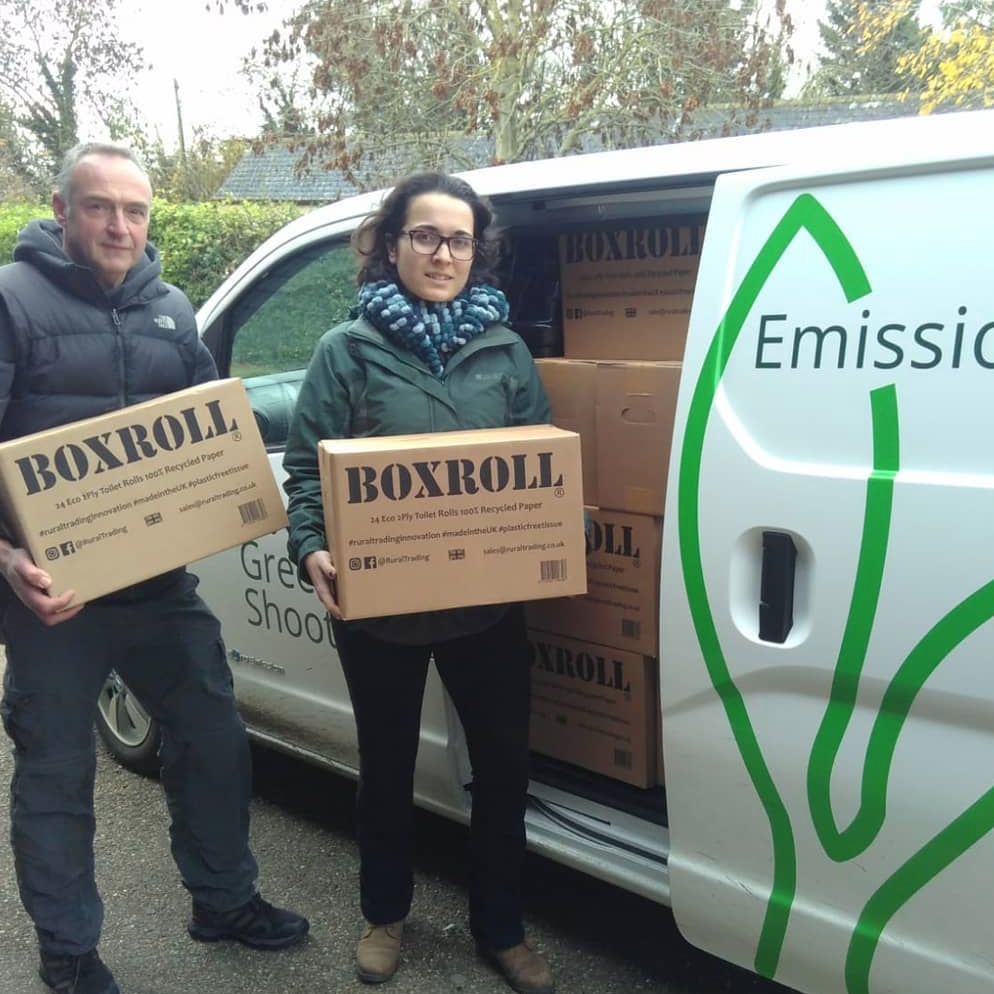
We don’t have refrigerated vans so we don’t stock dairy or meat products, which fits with our environmental values and sourcing policy of not stocking meat or dairy. Beyond that we’re not trying to exclude people.
When there are suppliers selling the same products they don’t prioritise one producer over another and both suppliers will both be listed. But, if they have something that a national supplier sells, but a local producer also sells the same thing, they will prioritise the local producer.
They leave it up to the retailers to decide how to proceed when choosing what to buy. They are not a wholesaler but are trying to establish direct relationships, so it’s up to the producers to do their own work with retailers.
Producers selling elsewhere
Cambridge Food Hub buys from farms across the UK and also stocks products from some national brands – for example, oat milk and organic grocery items. Whenever a supplier is not local, their values need to be in line with the values of the hub. Such as, British, ethical, organic, fairtrade for instance. They have a food sorting policy which explains the decisions they make for suppliers and distance from the food hub is a part of the policy.
Customer relationships
Communication with old and new customers
Cambridge Food Hub send out regular emails when they open their order cycle which tells their customers about any changes in products and things like that. This is an important means of communication for them. They used to use mailchimp, not just for their customers but also for their supporters during a period of time when they were doing a fundraising exercise.
They are also on Instagram, but are not sure about the distinction in communicating with a B2B and a B2C audience. So, they talk to their Instagram audience as if they are talking to a wider audience. This is because it’s not only the businesses they supply, but also their customers who will see it.
Handling complaints
With the food hub, the main kind of complaints they receive are if something supplied is poor quality. E.g. if produce has gone off or something that comes in just isn’t good enough quality.
For example, a recent complaint for them was when a chocolate rice cake product had been damaged due to the heat. In this and similar circumstances they offer their customers credit and then try to get the refund back from the supplier. It also depends on what their customer wants.
Sometimes our customers just want to tell us and sometimes they ask for a refund. We’ve never had any complaints beyond the quality of things. Maybe it’s because I’m viewing things in a positive way.
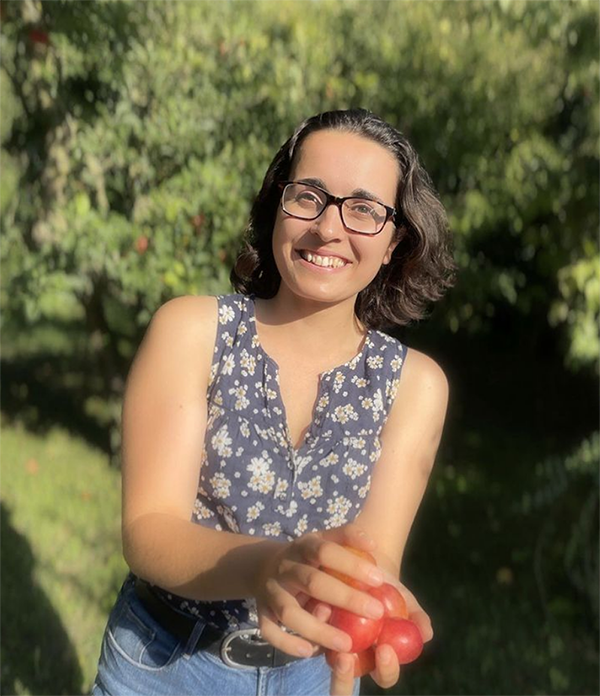
Engaging with their community
There is their presence on social media more generally, which keeps people updated. They are currently thinking of new, more general ideas – like doing a podcast.
Or something exciting and a bit different because there’s some interesting thoughts about what we’re doing with the food hub and how we envision what food systems should be like and that sort of thing. There is definitely potential for more interesting communication as we build up to development of the food hub. Plans are there for certain and already looking out for support from the OFN with communications.
They believe that engagement indicates their degree of success – particularly on social media. When something doesn’t get any response or any comment then they don’t feel that it has worked. They use analytics, but in a really basic way. They have increasingly done more analytical research on marketing and communication for their sister business, Cambridge Organic. However, this now needs to be applied to the Cambridge Food Hub.
Getting help from the Open Food Network
I would say I’m overwhelmingly positive about the Open Food Network support and it’s incredibly responsive. In other systems if you want support you wait ages or get ignored. I like the Signal group and that it’s not just OFN support but peer support too. Whenever I’ve had a problem it’s been fixed within the hour.
Fast and open communication and genuinely the best level of support from any software platform. The OFN has always done what I wanted it to do, so no problems.
For support, the Cambridge Food Hub looks for experts that share their same values such as triple bottom line accountants or organic certification bodies. Where these organisations cannot provide them with the advice they need, the food hub solicits advice from government bodies.
Business Model
The Cambridge Food Hub applies a margin to produce sold through the Hub, but manages this margin so it is lowest for local producers and higher for bigger or international suppliers.
Employees
“There is a very symbiotic relationship between Cambridge Food Hub and Cambridge Organic”
Operating as a combined business, Cambridge Food Hub and Cambridge Organic employ 29 people. Of those 29 employees, 2 work directly with Cambridge Food Hub and the others support the hub with deliveries and collections.
Legal and Financial Advice
For support, the Cambridge Food Hub looks for experts that share their same values such as triple bottom line accountants or organic certification bodies. Where these organisations cannot provide them with the advice they need, the food hub solicits advice from government bodies.
Extra resources
Click here to watch this seminar with Duncan Catchpole from Cambridge Food Hub: “Local Food Ecosystems; How Food Hubs Can Help Create a More Sustainable Food System.
In this video, Alice Guillaume shares the practical steps Cambridge Food Hub are taking to address food affordability. And, here is a blog with more on this topic.
Click here to watch this video to learn more about Cambridge Food Hub’s business model and what has worked well for them and what they might have done differently.

